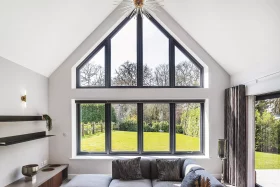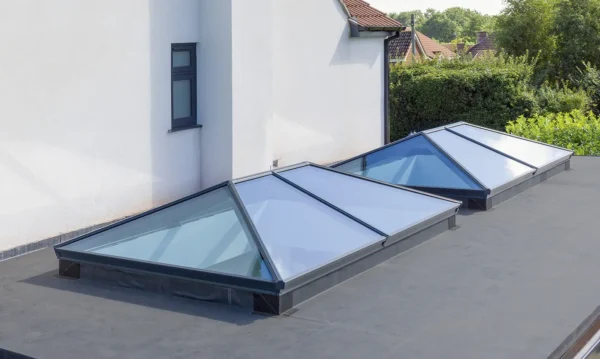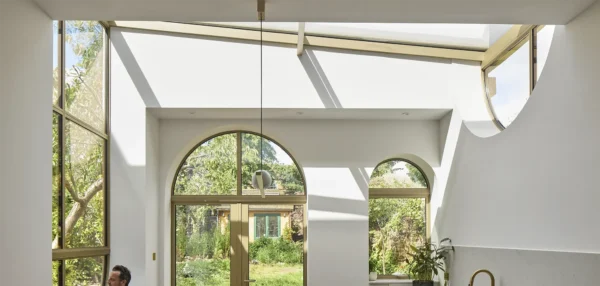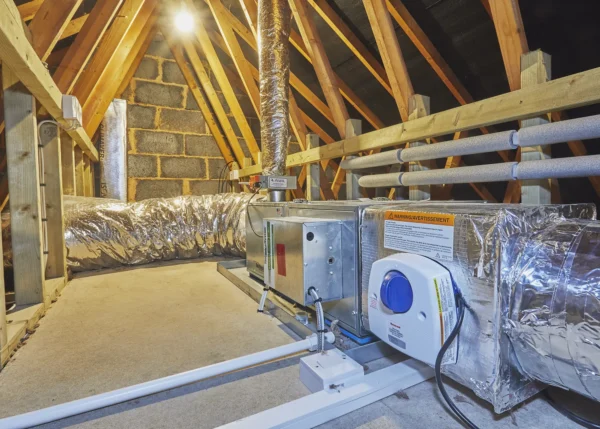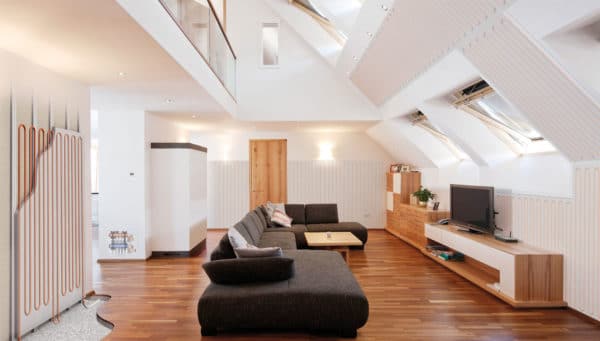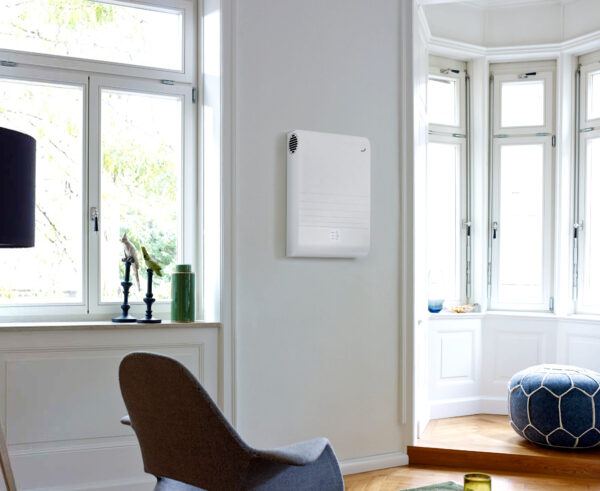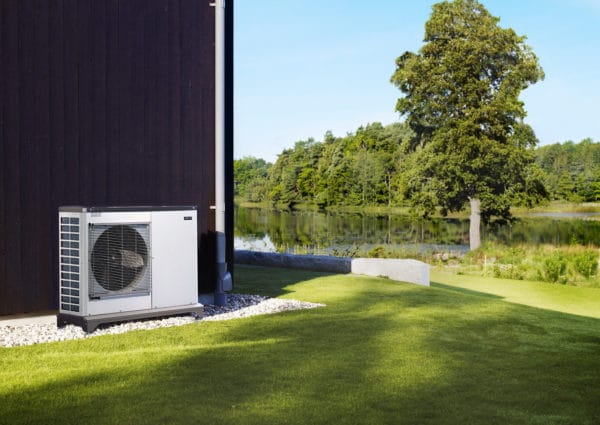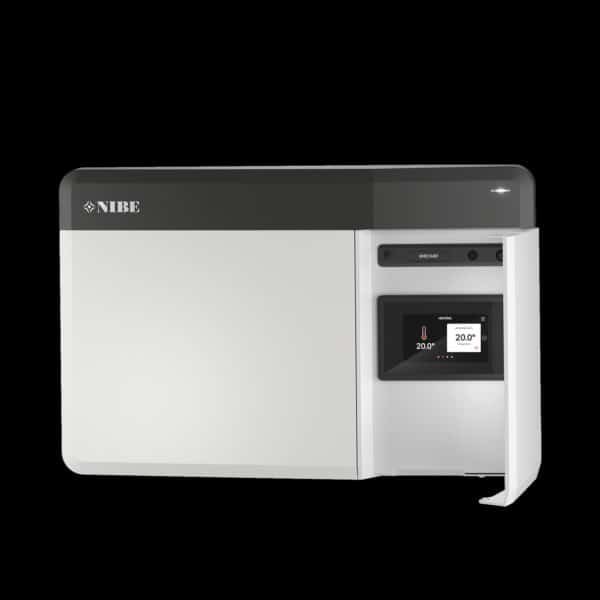Hybrid Heat Pump Guide
A hybrid heat pump is a modern heating system that combines a heat pump with another heat source – usually a gas or oil boiler – for space heating and hot water. The idea is to harness both types of heating system in order to maximise energy, carbon and bill savings.
Tackling carbon emissions from both domestic and commercial heating is at the top of the government’s climate agenda. Its recent Heat and Buildings Strategy outlined plans to phase out boiler installs and switch to lower-carbon, electrically-powered heat pumps.
Switching to heat pump-only systems isn’t going to happen overnight. What’s more, there are other approaches that can deliver efficient, low cost space heating and hot water. Going hybrid is one option that’s growing in popularity – but is it right for your project?
How Does a Hybrid Heat Pump Work?
In a nutshell, a typical hybrid heating system is one that combines an air-to-water source heat pump (ASHP) with a gas or oil boiler.
A single smart controller then manages the entire hybrid heat pump setup. “That means the boiler and the heat pump can talk to each other,” says Henk van den Berg, strategic manager – heating and renewables for Daikin UK.
“You input your gas and electric tariffs. The controller then decides to run the heat pump, boiler or – in a truly joined up system – both of them.”
When the ambient temperature outside is really cold, the system will probably use the boiler. But when it’s milder, say 7°C+, most or all of the work will be done by the air source heat pump. As with any system, specifying a top-performing heat pump will help you to maximise savings.
Benefits of a Hybrid Heat Pump
Intelligent switching means you can enjoy lower running costs and lower carbon emissions with a hybrid heat pump.
“With our Altherma hybrid, if the heat pump doesn’t produce enough warmth on its own, it will be topped up,” explains Henk. “So you get a higher contribution from the pump towards the property’s total space heating demand.”
There are a number of advantages beyond cost-saving. Robustness is one: if a standalone boiler or heat pump breaks down, you can expect a lot of pressure from the family to make sure it’s fixed as quickly as possible. So you probably won’t have much time to shop around for quotes.
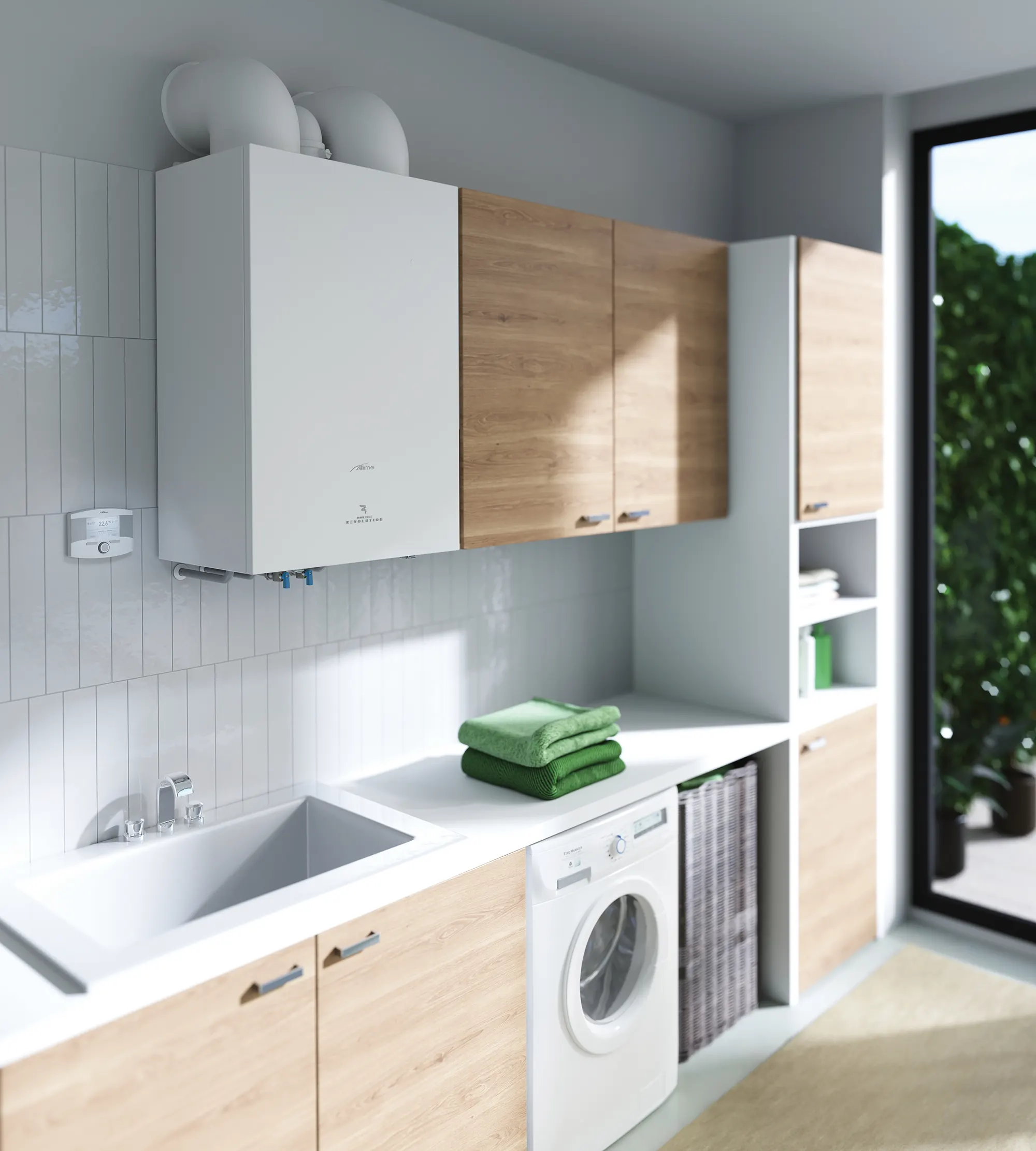
SIme’s Murelle Revolution won the 2019 Build It Award for Best Heating System or Product
“With a hybrid, you can run the heat pump if the boiler drops out; or vice versa. So it can be cheaper to fix because you don’t need to do it as an emergency,” says Henk.
You can even stage an install to suit your available funds. Need hot water asap? Then do the boiler first, and follow up by fitting the heat pump next summer. This gives you a clear pathway to lower-carbon heating.
What Exactly is Hybrid Heating?
So far, so simple. But at present, in the UK, there’s no universal agreement about exactly what constitutes a hybrid system. This confusion is probably holding hybrid heat pump technology back.
“We often use this hybrid interchangeably with ‘bivalent’, and both are very generic terms,” explains David Hilton, Build It Live expert and director of Heat and Energy. “So, often people don’t know if they’re buying a box with everything in it, or two different appliances with something communicating between them.”
The waters are further muddied as some UK homeowners have been sold so-called hybrid heat pump systems which have no automation whatsoever. This leaves them shorn of the key component – the controller – that empowers the setup to make smart, calculated decisions based on external temperatures, tariffs and the performance of the appliances.
“Even if there is a controller, this kind of crude bivalent setup is very complicated, because you have two different appliances,” says Henk. “So, there’s more installation time, more product and you end up with a system that doesn’t work cohesively.”The lack of an approved definition is one reason hybrid heat pump systems aren’t mentioned in the government’s 2021 Heat and Buildings Strategy.
“We have to clarify what hybrid heating is,” says Henk. “For instance, it could be a system where at least 80% of the space heating is delivered by the heat pump. If we could agree that, I think government would include it.”
Hybrid Heating for Existing Homes
Can hybrid heating work in existing properties? Absolutely. In fact, the tech was initially developed for existing houses with radiator-based heating systems. It’s particularly useful for larger homes with a high heat demand, where a standalone heat pump might not be sufficient.
So, the case for installing a hybrid heat pump can be compelling for renovations. That’s especially true with an easy-install monobloc system, like Daikin’s.
Basically, all you need is a standard boiler install, a few metres of pipe to make a simple water connection to the outdoor heat pump unit, and the controller on the wall. In general, there’s no need for a hot water cylinder (although that’s not the case with every hybrid heat pump system).
This means installing a hybrid heat pump system can be a quick and relatively affordable upgrade.
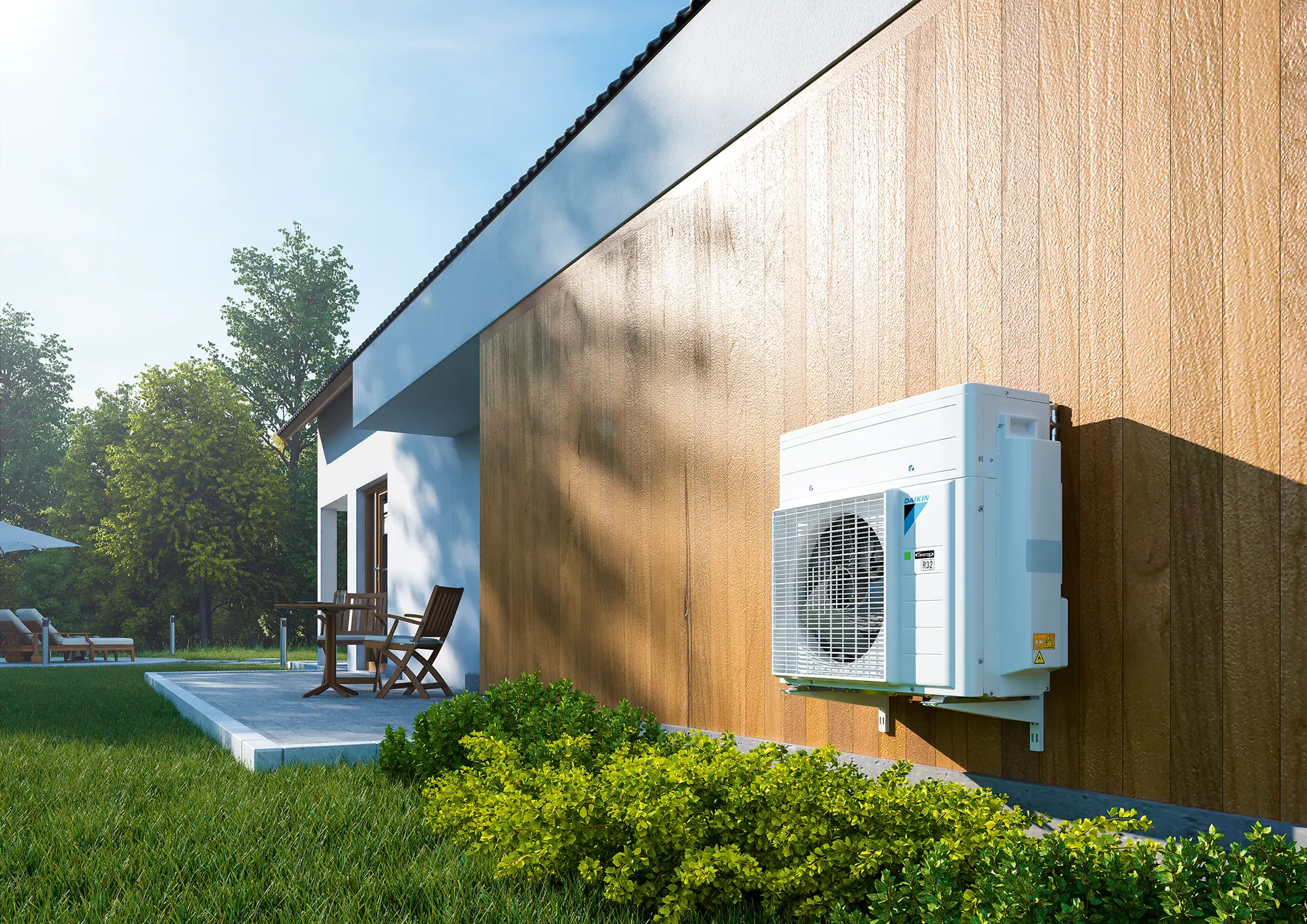
Daikin’s Altherma hybrid system automatically selects the most efficient mode of operation, either heat pump (pictured), gas boiler or a hybrid of both
“Our hybrid costs around £6,000 installed, compared to around £12,000 for a full air source heat pump,” says Henk. “So, even with the government’s new £5,000 Boiler Upgrade Scheme grant, hybrid is still cheaper.”
The heat pump and control can even be added to an existing boiler, although it’s relatively uncommon. “You don’t generally hear UK homeowners saying they really fancy a new heating system. For most people, it’s a distress purchase,” says Henk.
Learn more: Eco Friendly Ways to Heat your Home
Around 14 million households (50% of the UK total) run on combi boilers. So they don’t have a hot water tank, which is a prerequisite for a full heat pump installation.
“Government policy currently favours a switch to heat pump-only systems. That’s great for the other 14 million who already have a hot water cylinder and therefore a dedicated space for it,” says Henk.
“But if you don’t, then I need to have a discussion with you where I say ‘please give me some of your kitchen so I can put in a tank’. That’s not what most people want.” Going for a monobloc hybrid setup takes that headache out of the picture.
Hybrid Heat Pumps for New Homes
Whether a hybrid heat pump makes sense for self builds is a more nuanced scenario. “If you already have a boiler and add a heat pump and controller, the low cost and embodied carbon of the installation can be attractive,” says David.
But if you’re buying two systems for a new house, the calculations get a bit more complex. “It could make sense for large properties where you only have single phase electricity. In this case, you’d need more heat than an ASHP alone could feasibly provide,” David adds.
“For a bigger self build home, you would need quite a lot of gear anyway, so it may not represent a huge uplift in cost to go hybrid. But I think the real market will come when we get higher levels of hydrogen going in the grid.” Your existing hydrogen-ready combi boiler could then do the hot water, and a heat pump the space heating.
“In my own home, I use a very different form of hybrid, based around two heat pumps,” says David. “I have a Mitsubishi ASHP for the space heating; and an Ecocent heat pump cylinder from Earth Save Products that produces the hot water.”
“This made installation and setup relatively simple, with less need for control materials and valves. But that’s not always the case with bivalent systems.”
| QUICK GUIDE Who Should Design and Install Heat Pumps?
As with most elements of a project, it’s critical to work with experienced manufacturers and installers. A suitable heating engineer can complete the necessary heat loss calculations and provide you with a fully integrated setup. “You just need to commission it right”, says David Hilton. “That’s getting easier to do – for instance, Mitsubishi’s latest range of heat pump controllers are hybrid-ready. So, they have inputs for the boiler and the software to say ‘Ah, you need heat, but it’s too cold outside for the ASHP so I’ll just turn the boiler on.” Henk van der Berg agrees: “You’ll only get good results if the controller is properly set up. So speak to us or visit one of our Sustainable Home Centres. We’ve trained 500 plumbers to install these systems, so we know the average trade can get the knack of it. The biggest problem is the people who’ve installed boilers for 30 years and think they can just put new tech in without training.” You’ll need a good handover from your installer, too, including clear instructions on how to input new tariffs. “We provide a manual for consumers to do that themselves,” Henk continues. “Utility companies will probably very soon be able to input tariffs remotely. The first test sites are on the ground now.” To ensure the system works at its best, be careful to input the right fuel cost details. “If you’re using an oil-fired boiler, in particular, change the tariff according to the cost you think you’ll pay next time you buy a delivery. Don’t rely on what you paid last time,” says David. You may have paid 30-40 pence per litre for your previous oil delivery, but at today’s prices you might be looking at 60-70p next time around. That will have a significant impact on which system is cheapest to run in different countries. |
Henk has found self builders are embracing hybrid heating systems. That’s partly because it’s an easier-to digest choice than moving wholesale from a conventional boiler to a heat pump.
“As a government and industry, we’re very much focused on the final goal of going zero-carbon by 2050,” says Henk. “But we need to think about the road to getting there. A lot of our hybrid heat pumps are going into new homes. This isn’t really what hybrid is meant for, but it can make a lot of sense.”
Given a standard boiler lasts about 10 years, by 2050 many homeowners are likely to have required three boiler installs. “For people who can’t afford or – for whatever reason – don’t want to make the hard switch to a full electric heat pump now, hybrid offers a staged process to cutting carbon,” says Henk.
“It’s an accessible first step they can make now. Then maybe their next upgrade is that they change the heat pump for a higher capacity version.”



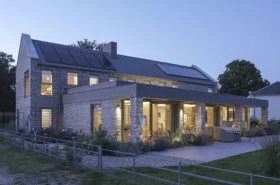

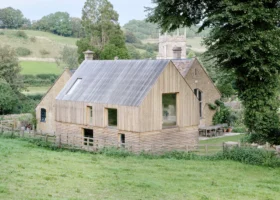
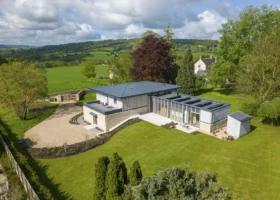
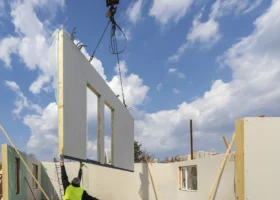
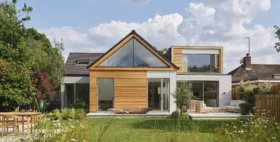
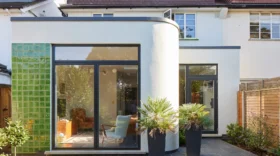
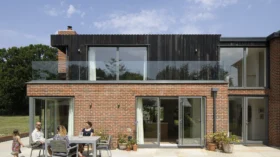

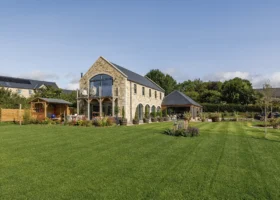

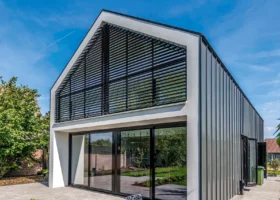
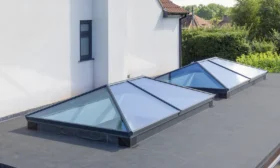
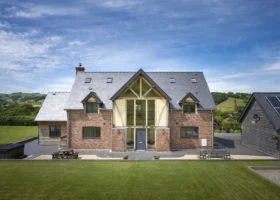
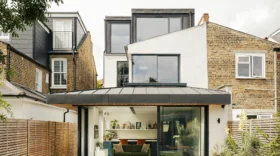
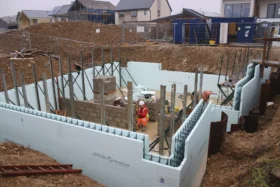
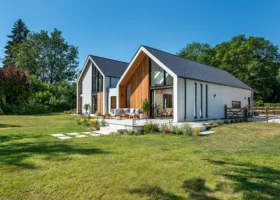
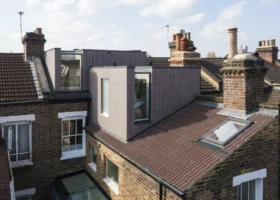
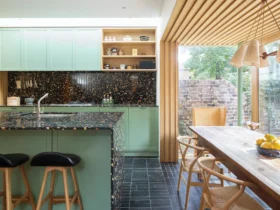



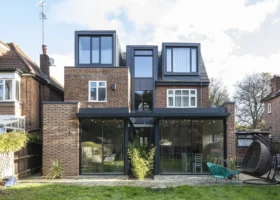
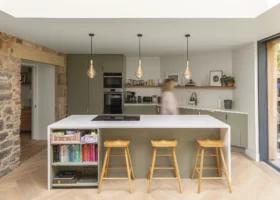
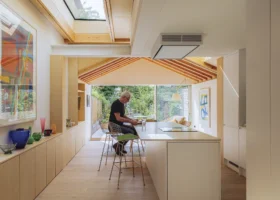
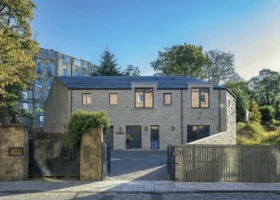
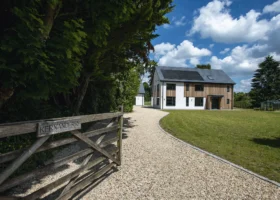
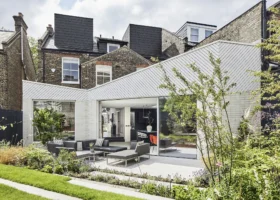
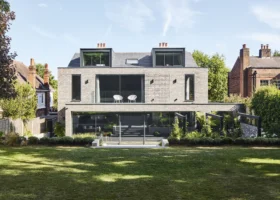
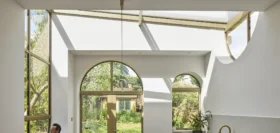
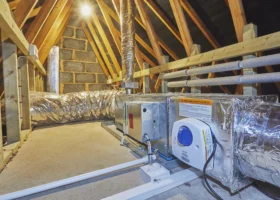
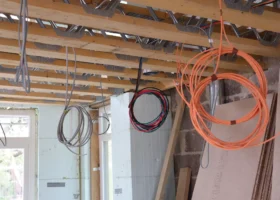

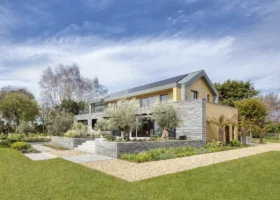
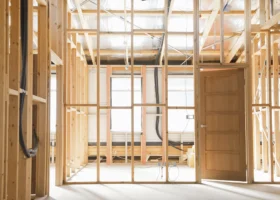
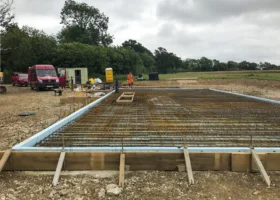
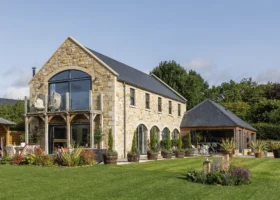

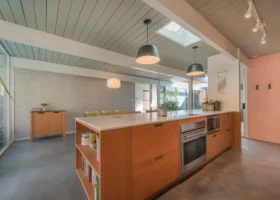

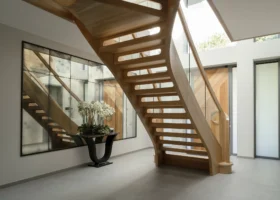
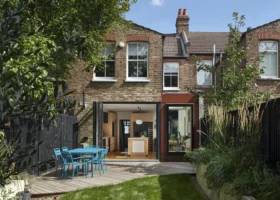
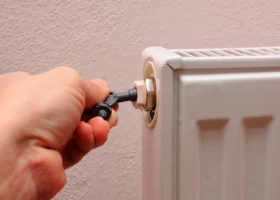

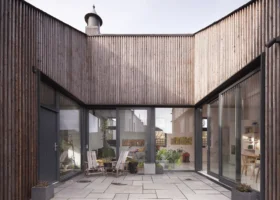
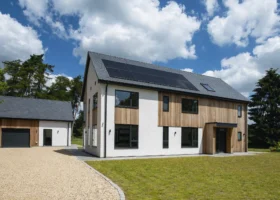
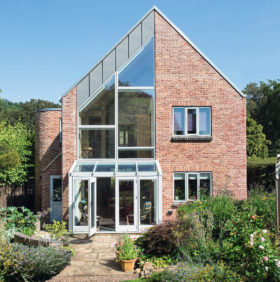
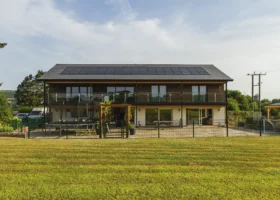
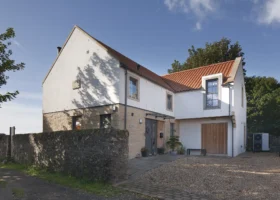


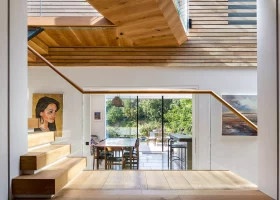
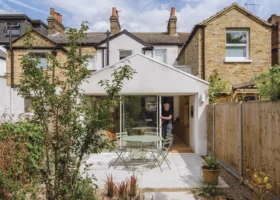
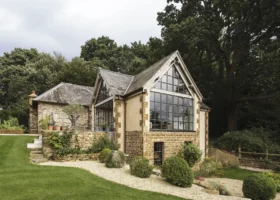
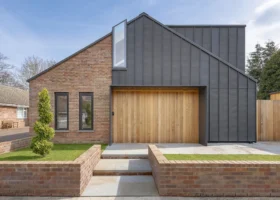
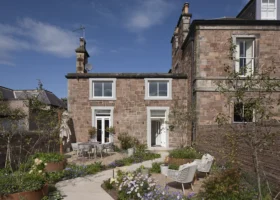
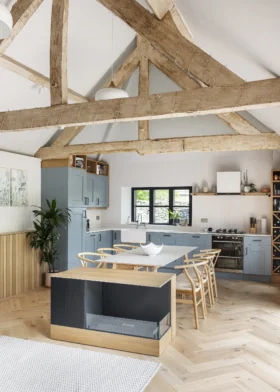
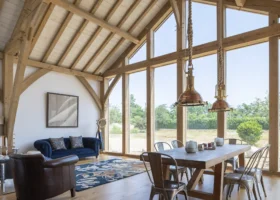








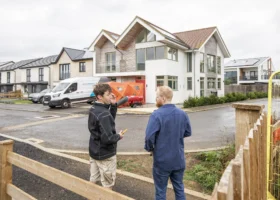








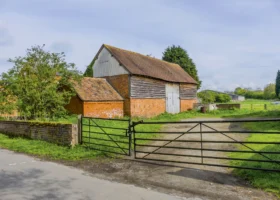
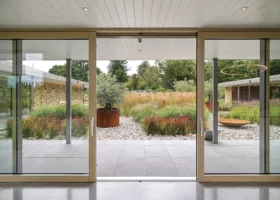


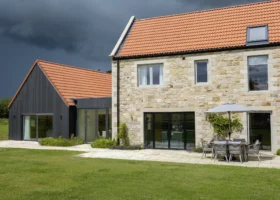
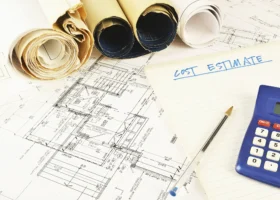

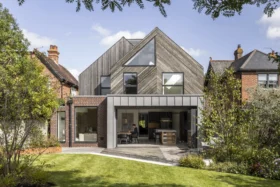








 Login/register to save Article for later
Login/register to save Article for later

